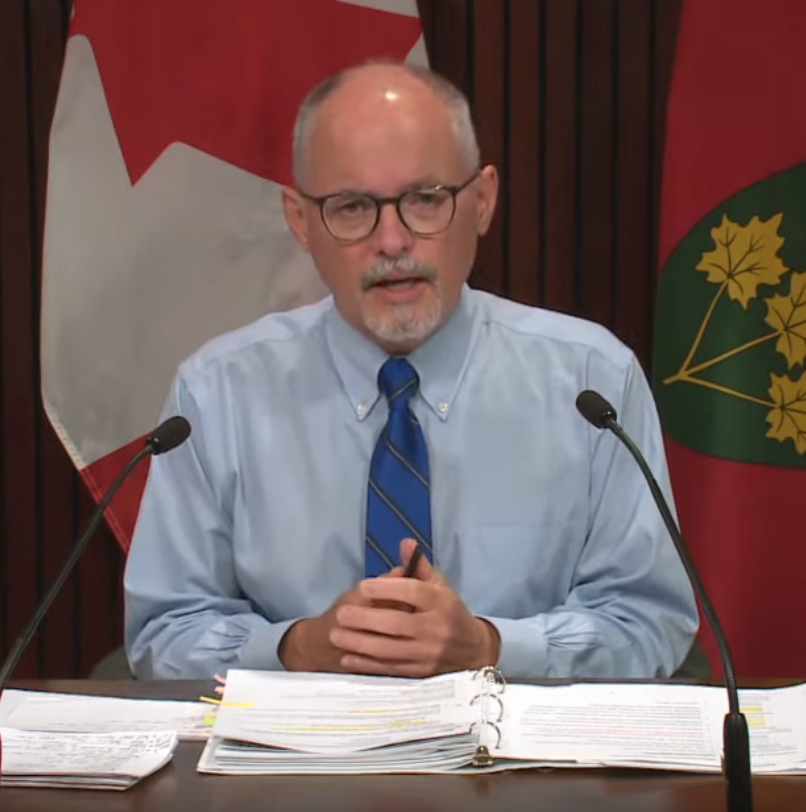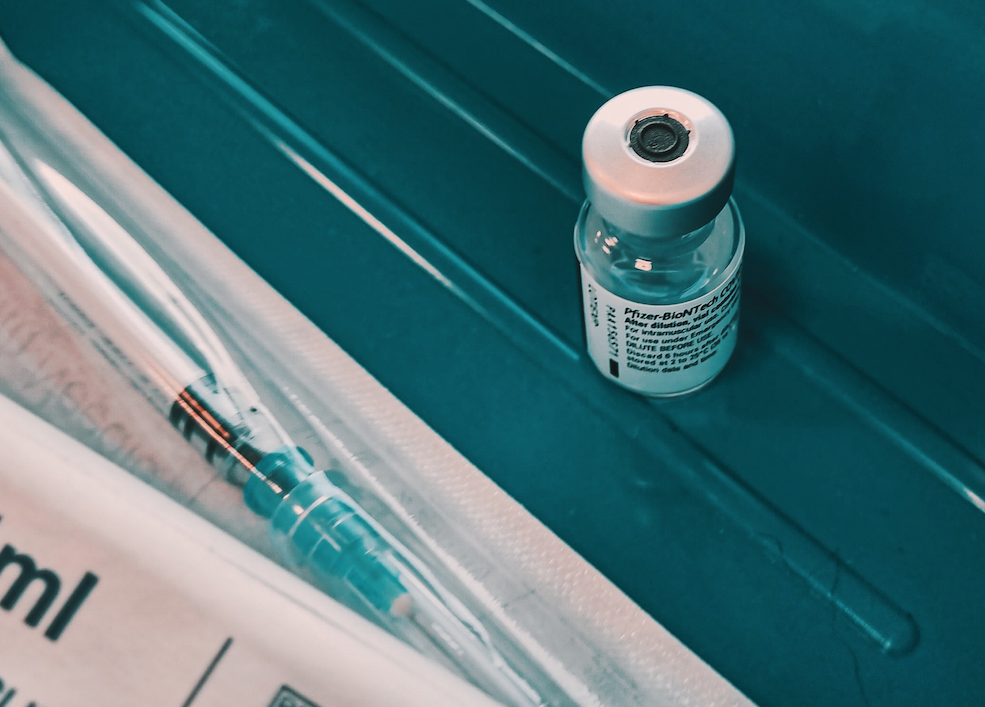TORONTO – The province is now recommending only the Pfizer-BioNtech COVID-19 vaccine to be given to Ontarians aged 18 to 24.
The decision comes on Sept. 29 from the province’s top doctor, Dr. Kieran Moore, following advice from Ontario’s child vaccine table, vaccine advisory group and Public Health Ontario.
Ontario is the only province in the country to have this recommendation.
The groups advised Moore on the preference after seeing data from the province’s adverse events surveillance system.
Males between 18 and 24 years old were found to be more at risk of experiencing an increase in swelling and inflammation of the membrane enveloping the heart and the heart muscle itself, following second doses of Moderna, compared to Pfzier.
The data comes from 96,000 vaccine doses administered between June 1 and Aug. 7, revealing 1 in 5,000 males aged 18 to 24 experienced myocarditis symptoms.
Symptoms typically involve chest pain, shortness of breath or fluttering of the heart, and diagnoses are made with blood testing or an electrocardiogram. Diagnoses are reported to the Public Health Ontario (PHO).
“Symptoms have typically been reported to start within one week after vaccination, more commonly after the second dose,” an information package supplied to news media stated.
“Individuals who have not developed symptoms within this timeline should feel confident that they are unlikely to develop symptoms later.”
Most cases were mild with individuals recovering “quickly” after receiving anti-inflammatory medication, like Ibuprofen.
Moore admitted to a reporter during a Wednesday press conference he had concerns publicly addressing the risks because of vaccine hesitancy.
But he said, “We have to have accountability to the public, and I think the public deserves to know the facts on the risks that we’ve identified in Ontario.”

Ontario chief medical officer of health Dr. Kieran Moore (Legislative Assembly of Ontario screenshot)
“I just want to be clear: we’ve not had fatalities whatsoever associated with this complication,” he said.
PHO data states there were 28.2 reported incidences per million second doses of Moderna administered, compared with 8.7 incidences per million second Pfizer doses.
Broken down to incidences in 18- to 24-year-olds, those numbers jump to 37.4 incidences per million second doses of Pfizer and 263.2 for Moderna.
However small the risk, Moore said he’s “not holding any facts back,” adding “there is a risk; it’s increased between one product and another and as a result for those specific age groups … we’re making a preference that individuals be offered the Pfizer over the Moderna product.”
Moore mentioned two of his sons, who fall in the age group, have received Moderna doses and said he has “complete confidence in it” but wanted to be “accountable” and “transparent.”
Since immunizations began and up to Aug. 7, there have been 314 reported incidences of myocarditis and pericarditis following vaccination, according to PHO.
Of those incidences, 110 were removed from consideration because they did not meet the Brighton Collaboration case definition levels for diagnostic certainty.
Of the remaining 204 incidences, 79.9% occurred in males and 69.9% occurred in females.
According to Moore, two in every 100,000 persons experience the heart conditions following a second vaccine dose.
For those infected with COVID-19, the rate is 11 in every 100,000 persons.
“Those 11 often end up needing hospitalization,” Moore said, adding 10 to 20% of COVID-19 patients admitted to hospital have some type of heart-related inflammation.
Whereas the heart conditions occurring secondary to vaccination are often mild and resolve quickly, the same conditions seen because of naturally occurring COVID-19 infections are generally more severe.
Even with the risk of side effects associated with COVID-19 vaccinations, data has shown the risk of a range complications due to COVID-19, both temporary and long lasting, is about 18 times greater in those infected with the virus.
If those between 18- and 24-years-old still want to receive Moderna, they can, with informed consent.
Otherwise, the province has said Pfizer doses can be administered as a first dose and as a second following Moderna.
The province will continue administration of Pfizer only for adolescents aged 12 to 17 from its stock of at least 2.7-million doses.




